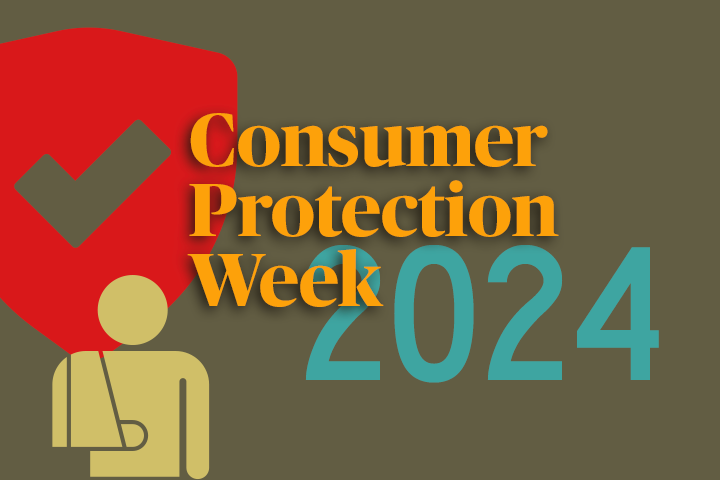
Think it’s safe to stay inside? Think again. In addition to the Top 10 most dangerous things in your house, new research has surfaced during Consumer Protection Week that may make you want to strap yourself onto your sofa and not move an inch.
A new analysis by the U.S. PIRG Education fund – Safe At Home in 2024 – shows the agency responsible for product recalls, the U.S. Consumer Product Safety Commission (CPSC), enhanced its enforcement in 2023.
The agency was dogged about product recalls, issuing three times more public warnings when companies decided they wouldn't cooperate with a recall than in the year before.
U.S. product recalls in 2023 were the highest in seven years, with 323 announcements about defective appliances, furniture, bike helmets, toys and other everyday products. The two largest civil penalties charged to companies who failed to report known hazards were Peloton Interactive Inc. and HSN Inc., formerly Home Shopping Network.
What’s worse were the injuries
The products involved in those recalls were tied to more than 550 injuries, 15 deaths, and more than 500 fires – before the recalls. Actually, the fatality count would be higher if it included the two re-announcements for infant rocker sleepers, which have been linked to about 115 deaths.
“It’s clear that dangerous products truly threaten all of us, our children and our homes,” said Teresa Murray, U.S. PIRG Education Fund’s consumer watchdog director and author of the report.
“The injuries and deaths that occur are tragic and difficult to read about. We’re often not safe at home, and we don’t even know it.”
When you buy something, some simple steps can protect you from being a statistic
There are more recalls than you can imagine. In ConsumerAffairs daily digest of recalls, there are vehicles, toys, tech gear, appliances, etc. Subscribing to that list is a good start.
But, US PIRG suggests that you periodically take a look around your house – in the kitchen, laundry room, bedroom, and the medicine cabinet – and search for those at saferproducts.gov, recalls.gov, or cpsc.gov/recalls.
“Fill out online or mail-in registrations that come with products, especially anything that plugs in, has a battery or is used by children,” Murray said.
“If you’re concerned they’ll share your information, then at least provide a secondary email address. That way, companies can contact you in case of safety warnings.”
But, be careful with resale and foreign websites
Resale websites like eBay and Facebook Marketplace are great places to find used articles at great prices, but even though it’s illegal for a business to sell recalled products, most, if not all of those sites lack the time or personnel to go through every single listing to find out if it’s been recalled or not. Therefore, you could be buying a pig in a poke.
“Use even more caution when buying products being shipped from overseas or from websites that seem unprofessional,” Murray said.
“International sellers may not comply with U.S. safety standards, and unethical sellers may peddle all sorts of previously recalled or unsafe merchandise.”
Safe At Home offers more tips for consumers to protect themselves from dangerous products before they shop and if something they own gets recalled.
Photo Credit: Consumer Affairs News Department Images
Posted: 2024-03-08 11:59:29



















